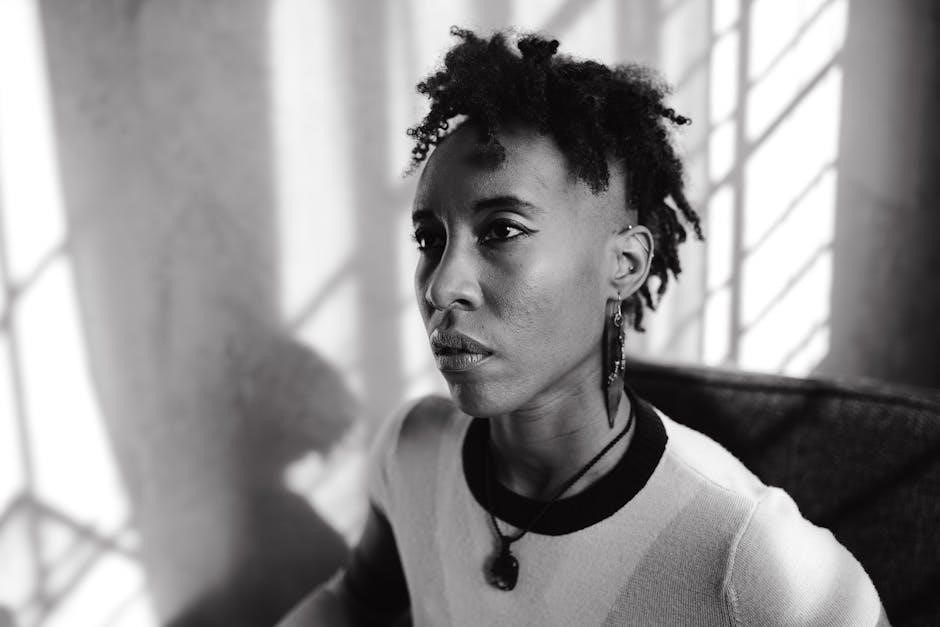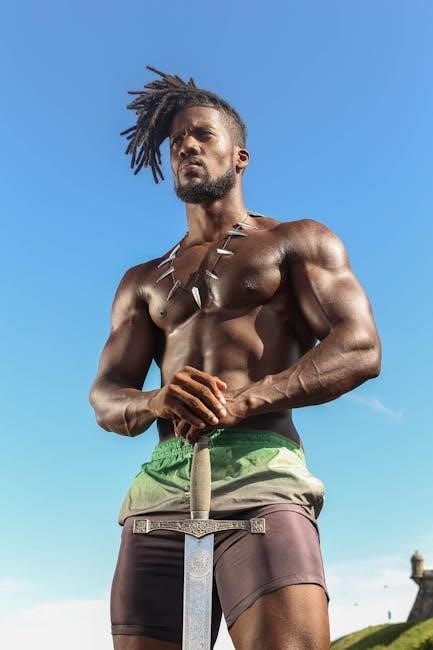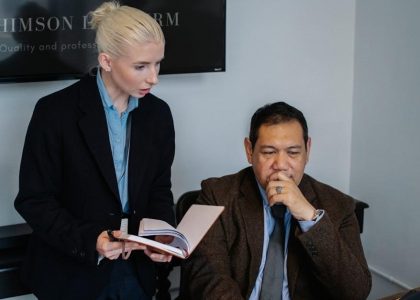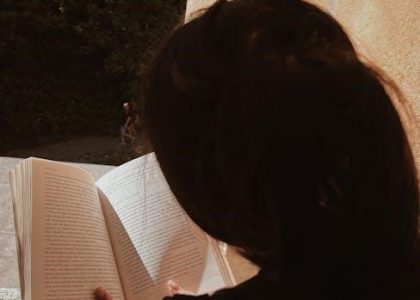The Seven African Powers are a revered group of Orishas in Yoruba tradition, embodying essential human aspects such as love, justice, and healing, with profound global influence.
The Role and Significance of Orishas in Yoruba Religion
The Orishas are central to Yoruba spirituality, serving as divine intermediaries between humans and the Supreme Being, Olodumare. Each Orisha embodies unique attributes and energies, representing forces of nature and human experiences. They are revered for their ability to influence aspects of life, such as fertility, justice, and healing. In Yoruba religion, the Orishas are believed to guide individuals through life’s challenges and provide spiritual balance. Rituals and offerings are performed to honor them, seeking their blessings and protection. Their significance extends beyond religious practices, shaping cultural identity and moral values in Yoruba communities. The Orishas are not just deities but manifestations of divine wisdom, playing a vital role in maintaining harmony and order in the universe. Their influence has also spread globally, impacting Afro-Caribbean traditions and modern spiritual practices. Through their stories and teachings, the Orishas continue to inspire and guide millions worldwide.

The Orishas: Divine Entities from Yoruba Mythology
The Orishas are divine beings from Yoruba mythology, representing powerful natural forces and human experiences, with each embodying unique attributes that influence the world and guide individuals.
Exploring the Mythological Origins of the Orishas
The Orishas, central to Yoruba religion, trace their origins to ancient Yoruba mythology, where they emerged as powerful deities created by the Supreme God, Olodumare. Some are believed to be primordial, existing before the world’s creation, while others evolved from ancestral spirits. These divine beings were tasked with governing various aspects of nature and human life, such as fertility, justice, and healing. Their stories and roles are deeply intertwined with the cultural and spiritual fabric of West Africa, shaping the beliefs and practices of the Yoruba people. The Orishas’ mythological origins highlight their significance as both guardians of cosmic order and guides for human existence, reflecting the rich spiritual heritage of the Yoruba tradition.
The Spread of Orisha Worship Across the Globe
The worship of Orishas, originating in Yoruba mythology, has spread globally due to historical migrations and cultural exchanges. The transatlantic slave trade forcibly brought enslaved Africans to the Americas, where their spiritual practices blended with local traditions, giving rise to religions like Santeria in Cuba and Candomblé in Brazil. These traditions preserved Orisha worship, adapting it to new cultural contexts. Today, the reverence for Orishas extends beyond Africa and the Caribbean, with followers in Europe, North America, and other regions. The global spread highlights the resilience and universal appeal of Yoruba spirituality, as people from diverse backgrounds connect with the Orishas’ transformative power and guidance. This global outreach reflects the enduring legacy of African religious traditions in shaping modern spiritual practices worldwide.
Profiles of the Seven African Powers

The Seven African Powers encompass a diverse range of Orishas, each representing unique domains such as love, justice, and healing, reflecting their cultural and spiritual significance globally.
Elegua: The Messenger Orisha
Elegua, the messenger Orisha, is revered for his role in communication and crossroads, guiding destiny and fate. Often depicted with a cane, he controls life’s paths, ensuring balance and clarity. In Yoruba religion, Elegua is the first Orisha invoked in rituals, as no ceremony begins without his permission. His power, known as Ashe, facilitates divine connection, making him indispensable in spiritual practices. Elegua’s ability to navigate between the physical and spiritual realms underscores his importance in resolving conflicts and granting opportunities. Worshipers seek his guidance for decision-making and navigating life’s challenges, highlighting his central role in the Seven African Powers.
Yemaya: The Mother of the Ocean
Yemaya, the Mother of the Ocean, embodies nurturing, fertility, and the life-giving power of water. As a protector of women and children, she symbolizes maternal care and abundance. Her domain, the ocean, reflects her vast, unconditional love and healing abilities. Yemaya is often invoked for emotional healing, fertility, and protection, making her a central figure in the Seven African Powers. Her connection to the moon underscores her mystical influence over tides and cycles of life. Worshipers honor her with offerings like shells and blue candles, seeking her guidance for family, relationships, and personal growth. Yemaya’s global reverence highlights her enduring relevance in spiritual practices, bridging ancient traditions with modern devotion.
Oshun: The Goddess of Love and Fertility
Oshun, the radiant Goddess of Love and Fertility, is a cornerstone of the Seven African Powers. She embodies the essence of beauty, passion, and creativity, ruling over rivers and freshwaters. Known as the “Queen of the Osun River,” Oshun is celebrated for her nurturing spirit and ability to foster abundance in all areas of life. Her power extends to healing emotional wounds, igniting love, and granting fertility. Devotees honor her with offerings of honey, gold, and yellow flowers, symbolizing her warmth and sweetness. Oshun’s influence transcends borders, resonating deeply in Afro-Caribbean traditions and modern spiritual practices. Her divine energy continues to inspire those seeking harmony, love, and prosperity, making her one of the most beloved Orishas in the pantheon of the Seven African Powers.
Shango: The God of Thunder and Justice

Shango, the powerful God of Thunder and Justice, is a central figure among the Seven African Powers. Known for his strength, courage, and fiery temper, Shango is revered as a protector of truth and righteousness. In Yoruba mythology, he is often depicted wielding a double-headed axe, symbolizing his control over thunder and lightning. Shango is also associated with justice, ensuring fairness and balance in human affairs. His transformative power helps individuals overcome adversity and achieve personal growth. As a ruler in the Yoruba kingdom of Oyo, Shango’s legacy extends beyond mythology, influencing Afro-Caribbean traditions like Santeria. Devotees honor him with red and black offerings, reflecting his dynamic and commanding energy. Shango’s role as a protector and enforcer of justice makes him a vital Orisha in the spiritual practices of the Seven African Powers, inspiring awe and devotion across cultures and generations;
Obatala: The Creator and Healer
Obatala, the Orisha of creation and healing, is a cornerstone of the Seven African Powers. Revered as the creator of human bodies and the ruler of peace, Obatala embodies purity and clarity. Often depicted in white attire and associated with the color white, he symbolizes spiritual cleansing and renewal. His role in Yoruba mythology includes fashioning the first humans, emphasizing his divine craftsmanship. Obatala is also a healer, offering solace to those seeking emotional and physical restoration. His calm and serene energy provides balance in chaotic times, making him a beloved figure in spiritual practices. Devotees often seek his guidance for clarity, health, and harmony. Obatala’s influence extends into modern worship, where his teachings on compassion and creation remain central to the traditions of the Seven African Powers.
Oya: The Goddess of Change and Storms
Oya, the powerful Orisha of storms, change, and transformation, embodies the fierce energy of the wind and lightning. She is a guardian of justice and a protector of the oppressed, often called upon to sweep away obstacles and bring clarity. Associated with the marketplace and crossroads, Oya symbolizes the dynamic forces of life that drive progress and renewal. Her fiery spirit is both destructive and constructive, clearing the way for new beginnings. In the Seven African Powers, Oya represents the unstoppable power of change and the courage to embrace it. Her influence extends beyond Yoruba traditions, resonating in Afro-Caribbean practices and modern spirituality, where she is revered as a symbol of strength and resilience. Oya’s transformative energy continues to inspire those seeking personal growth and liberation from stagnant patterns.
Ogun: The God of Metalworking and War
Ogun, the Orisha of metalworking and war, is a powerful deity revered for his strength, creativity, and role as a protector. He is often depicted as a muscular, handsome man dressed in green or adorned with palm fronds. As the master of iron and steel, Ogun is credited with teaching humanity the art of metalworking, a skill essential for both tools and weapons. His association with war stems from his role as a fierce warrior who fights for justice and defends the innocent. Ogun’s energy is both destructive and constructive, embodying the duality of conflict and creation. In the Seven African Powers, he represents resilience, determination, and the transformative power of hard work. His influence extends across Yoruba mythology and Afro-Caribbean traditions, where he is honored for his ability to forge strength and resolve in those who seek his guidance.

Cultural and Spiritual Impact
The Seven African Powers have profoundly shaped spiritual and cultural practices globally, influencing Afro-Caribbean religions and modern traditions, offering guidance and transformative power in human experiences.
Influence on Afro-Caribbean Religions and Practices
The Seven African Powers have deeply influenced Afro-Caribbean religions like Santeria and Voodoo, blending Yoruba traditions with local practices. These Orishas are central to rituals, guiding followers through life’s challenges and offering spiritual strength. Their presence is felt in ceremonies, music, and art, reflecting a rich cultural heritage. By honoring these deities, practitioners connect with their African roots, fostering resilience and unity. The integration of Orisha worship into Caribbean societies highlights the enduring legacy of Yoruba spirituality, ensuring its relevance in modern times. This fusion has created vibrant, adaptive faith systems that continue to inspire and nurture communities worldwide.

Modern Practices and Worship of the Seven African Powers
Modern worship of the Seven African Powers blends traditional rituals with contemporary practices, ensuring their relevance in today’s globalized world. Devotees honor the Orishas through offerings, prayers, and ceremonies, often seeking guidance for life’s challenges. Rituals may include the use of sacred objects, herbs, and chants to connect with these divine entities. Many practitioners incorporate these traditions into their daily lives, finding strength in the Orishas’ teachings. The rise of digital platforms has also made it easier for individuals to learn about and engage with the Seven African Powers, fostering a vibrant, interconnected community. This modern approach ensures that the timeless wisdom of the Orishas continues to inspire and uplift people worldwide, adapting to new contexts while preserving their spiritual essence.

Resources for Further Exploration
Explore the ‘Seven African Powers’ PDF for in-depth insights into Orisha traditions, rituals, and their cultural significance. Scholarly articles and books provide additional perspectives on their spiritual influence.
The ‘Seven African Powers’ PDF and Other Literature

The ‘Seven African Powers’ PDF offers a comprehensive guide to understanding the Orishas, detailing their roles, mythological origins, and global influence. It provides insights into rituals, cultural significance, and modern practices, serving as a valuable resource for both spiritual seekers and scholars. The document highlights how these deities address human needs such as love, justice, and healing, while also exploring their impact on Afro-Caribbean traditions. Additionally, literature like Monique Joiner Siedlak’s work delves into the spiritual essence of the Orishas, offering readers a deeper connection to their wisdom. These resources are essential for anyone seeking to explore the rich tapestry of Yoruba spirituality and its global resonance.





